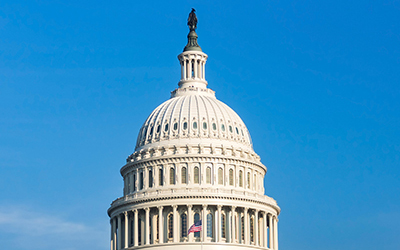 The U.S. economy surprisingly accelerated to a 2.4% annual growth rate from April through June, showing continued resilience in the face of steadily higher interest rates resulting from the Federal Reserve’s 16-month-long fight to bring down inflation.
The U.S. economy surprisingly accelerated to a 2.4% annual growth rate from April through June, showing continued resilience in the face of steadily higher interest rates resulting from the Federal Reserve’s 16-month-long fight to bring down inflation.
- And end of July estimate from the Commerce Department indicated that the gross domestic product — the economy’s total output of goods and services — picked up from the 2 percent growth rate in the January-March quarter. Last quarter’s expansion was well above the 1.5% annual rate that economists had forecasted.
- Driving the gain was business investment, which surged at a 5.7 percent annual pace, the fastest rate since
- late 2021.
- Companies plowed more money into factories and equipment, increasing spending by state and local governments to add growth in June.
- A surge in government funding and related private investment is beginning to make its way to businesses and communities across the country, building electric vehicles, new bridges, airport upgrades and a host of other infrastructure and green energy projects that are juicing the economy — just when it needs it most.
- The federal government has announced some $299 billion and has spurred another $503 billion in business investment that is providing a surprisingly quick and robust boost to the U.S. economy.
The Biden administration estimates that three key pieces of legislation — the Inflation Reduction Act, Chips and Science Act, and Infrastructure Investment and Jobs Act — will eventually translate to roughly $3.5 trillion in funding over the next decade, including some $1 trillion from private
businesses — all boosting construction.
Senate Passes SMACNA-Endorsed S. 1111, Nuclear Power ADVANCE Act
Passed as part of the Senate National Defense Authorization Act (NDAA), SMACNA applauds a major milestone for S. 1111. A high priority sponsored by Senators Whitehouse (D-RI), Capito (R-WV) and Barrasso (R-WY) for more than a decade, this bipartisan energy bill made noticeable progress every year but fell short at the end of each Congress. While it has passed the Senate Energy Committee the last two Congressional sessions, it recently passed the full Senate. SMACNA’s priority is now halfway home to enactment with only the House–Senate Conference remaining. Importantly, the President pledged to sign S. 1111 when it hits his desk. S. 1111 (118) would expand nuclear energy to advance nuclear technologies.
The ADVANCE ACT would:
- Accelerate the deployment of advanced nuclear reactors in the US.
- Modernize licensing requirements to address the needs of new technologies.
- Identify regulatory barriers that limit the safe deployment of new nuclear technologies.
- Boost new technologies capable of radically reducing carbon emissions.
- Direct the Nuclear Regulatory Commission to create a pathway for conventional energy source sites to be repurposed and used in the future.
Status: The House-Senate NDAA Conference opens in mid-September.
Senate Majority Leader’s September Agenda Features SAFE Banking Act (S. 1323)
To boost the odds of passage, we again expressed our support for passing the Secure and Fair Enforcement (SAFE) Banking Act of 2023, S. 1323, introduced by Senators Merkley (D-OR) and Daines (R-MT) and 42 bipartisan cosponsors. We have endorsed passing S. 1323 as a standalone bill or as part of another legislative package. The SAFE Banking Act would allow banks, credit unions, and other financial institutions to offer banking services to legally operating cannabis businesses without fear of punishment by federal regulators. Enacting the SAFE Banking Act would support a rapidly growing legitimate industry that creates jobs, supports small businesses and raises revenue in states that have chosen to legalize cannabis products. This banking reform would also reduce small business anxiety, contracting complications and safety risks.
Status: The SAFE Act will be voted on in the Senate Banking Committee in September with floor action following, unless added as an amendment to a related bill.
DOL Employment and Training Administration (ETA) Sends National Apprenticeship System Enhancements Proposed Rule to the White House for Final Review
The White House Office of Information and Regulatory Affairs (OIRA) received a proposed rule from the Department of Labor’s Employment and Training Administration entitled, “National Apprenticeship System Enhancements.” SMACNA’s CHO and Labor Department Executive Directors operating as a team has been deeply engaged from square one in 2021 on both the development and regulatory comment phases of this proposed rule, including providing testimony, appearing in special White House hearings, providing comments and making recommendations for elements of this proposed rule.
In general terms, the Department is expected to use this rulemaking to revise its regulations governing the National Apprenticeship System.
The proposed rule is expected to address important issues, such as:
- Protection of apprentices
- State governance provisions
- Creating a process to direct federal apprenticeship funding to certain programs
- More clearly established pipelines to registered apprenticeships such as pre-apprenticeships.
The OIRA review is typically the final step before a proposed rule is then published in the Federal Register for any public comment.

